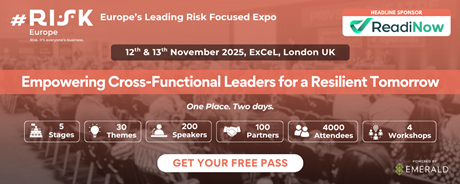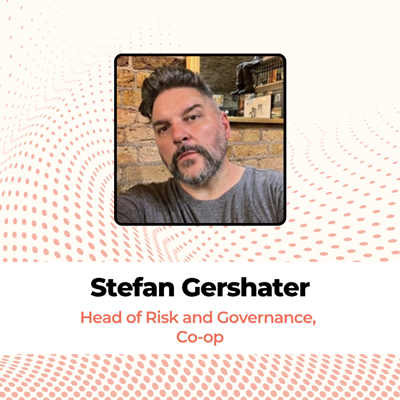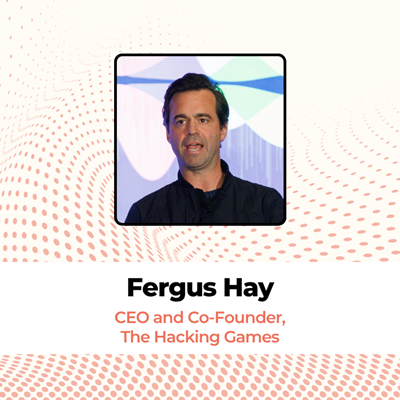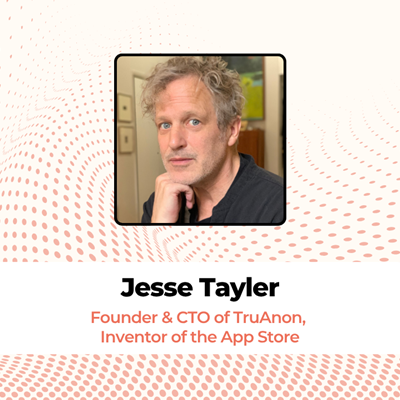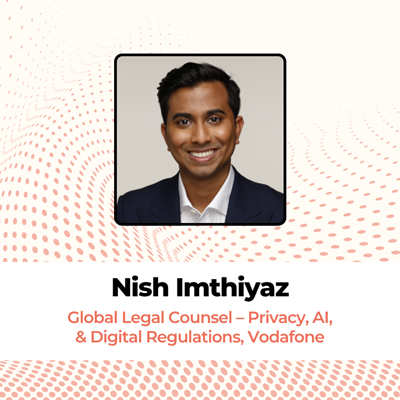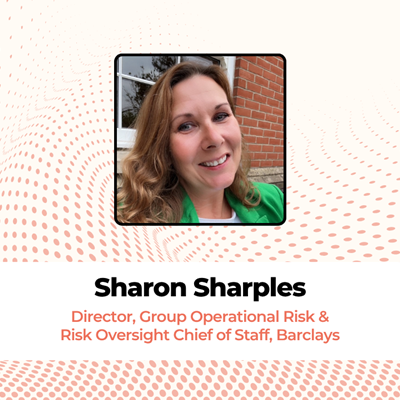| GMT |
Wednesday 12 November 2025 |
| 07:30 |
07:30 AM > Exhibitors Access
|
| 09:00 |
| 09:00 |
09:00 AM > Registration
|
| 9:55 |
| 10:00 |
10:00 AM > Navigating NIS2: Turning Compliance into Cyber Resilience
The EU’s NIS2 Directive represents a step change in Europe’s approach to cybersecurity governance - broadening sectoral scope, tightening reporting timelines, and introducing personal accountability for management. But as compliance deadlines approach, organisations are finding that tick-box exercises won’t cut it. The real opportunity lies in embedding NIS2 principles into a culture of proactive, risk-based resilience - one that integrates cyber governance into enterprise-wide decision-making, supply-chain risk management, and business continuity planning.
This session examines how regulated entities across sectors are interpreting NIS2, from defining “essential and important” services to managing third-party dependencies and achieving alignment with ISO 27001, DORA, and other frameworks. Panellists will discuss how to translate obligations into operational strength, turning regulatory pressure into a catalyst for better oversight, faster incident response, and stronger collaboration between compliance, IT, and the boardroom.
Moderator
- Daniel Tor, Senior Compliance & Assurance Manager (Telecoms GRC), Sky
Panelist
- Nish Imthiyaz, Global Legal Counsel – Privacy, AI, and Digital Regulations, Vodafone
- Simon Laurette, Associate Director - Cyber Regulatory Lead, Forvis Mazars
- Chloe Dellow, Strategic Risk Specialist, OneTrust
|
| 10:35 |
| 10:35 |
10:35 AM > Cyber Risk is Business Risk: Embedding Cyber into Enterprise Risk Management
Boards increasingly demand cyber fluency. Here’s how CISOs and risk leaders can align their priorities and language.
Moderator
- Eric Alter, Senior Vice President – Cyber/AI Engagement Leader, Marsh Corporate & Commercial
Panelist
|
| 11:10 |
| 11:10 |
11:10 AM > When AI Ships Fast, Can Risk Management Keep Up?
Reflections from Software Development on Aligning Governance and Risk Management with Agility and Pace
AI has transformed the speed and scale of software development — models ship faster and automation accelerates delivery. But governance and risk management haven’t evolved at the same pace. This session takes a bottom-up view from the world of software engineering to explore how governance can become as adaptive, iterative, and data-driven as the systems it seeks to control. Drawing on lessons from agile development, DevSecOps, and AI lifecycle management, we’ll discuss practical ways to embed governance and risk management in flow, not friction — enabling organizations to manage risks, while staying competitive in an AI-driven world.
Speakers
|
| 11:40 |
| 11:50 |
11:50 AM > Navigating the RegTech Boom: What’s Working, What’s Just Buzz?
The RegTech market has exploded in recent years, promising to transform how organisations manage compliance, risk, and reporting. Yet not every solution delivers on its hype. This session brings together financial institutions, regulators, and technology innovators to separate substance from spin. Where are RegTech tools truly improving oversight, efficiency, and resilience—and where are they adding complexity or cost? Panellists will explore adoption trends, integration challenges, and lessons from real-world deployments to identify what’s genuinely driving value in the next generation of regulatory technology.
Where are RegTech tools truly improving oversight, efficiency, and resilience—and where are they adding complexity or cost? Panellists will explore adoption trends, integration challenges, and lessons from real-world deployments to identify what’s genuinely driving value in the next generation of regulatory technology.
Moderator
Panelist
|
| 12:30 |
| 12:40 |
12:40 PM > KEYNOTE: The Ethical Fork in the Road Facing Gen Z: How Can We Inspire Gen Z to Become Ethical Hackers in Modern Workplaces?
With $10.5 trillion projected to be lost to cybercrime in 2025, and 69% of European teens having committed a cybercrime/cyber misdemeanor, we’re facing a generational crisis.
The Hacking Games seeks to inspire, educate, and empower young people to become defenders rather than attackers. This session discusses the societal, technological, and law enforcement challenges surrounding youth cybercrime and what we can do to address them.
Speaker
|
| 13:25 |
| 13:30 |
13:30 PM > KEYNOTE: Ctrl+Alt+Chaos: How Teenage Hackers Hijack The Internet
M&S, Co-op, JLR and many other hacks this year are being blamed not on foreign cyber crime gangs but English-speaking teenagers. Groups like Lapsus and Scattered Spider have rewritten the rules.
The innocence is gone. Teenage hacking has rapidly evolved from youthful curiosity to a calculated, monetised threat. Whether it's the lure of easy money, the promise of digital celebrity, or targeted recruitment by organised crime, this generation of attackers is skipping the learning phase and going straight to serious criminal activity.
Join Joe Tidy as he uncovers the social and economic drivers behind this dangerous escalation, mapping the common pipeline that converts a gaming enthusiast into a sophisticated, costly cybercriminal.
Speaker
- Joe Tidy, BBC News Cyber Correspondent & Author
|
| 14:10 |
| 14:15 |
14:15 PM > Incident Response Under Scrutiny: What Regulators Expect After a Breach
What a compliant, well-governed breach response looks like in 2025, from playbooks to post-incident reviews.
Moderator
Panelist
- Maria Koslunova, Global Privacy and Data Protection Director, Turner & Townsend
- Jack Perrin, Sales Manager, Data Breach, Relativity
|
| 14:55 |
| 15:05 |
15:05 PM > Aligning Business Strategy with Cyber Risk Management
Effective cybersecurity isn’t just about IT—it’s about business. This panel examines approaches to integrate risk management into strategic planning, ensuring that cybersecurity efforts directly support organisational goals.
Moderator
Panelist
|
| 15:45 |
| 15:55 |
15:40 PM > The Importance of Threat-Led Penetration Testing (TLPT) in an Era of High-Stakes Breaches, AI, and Regulatory Convergence
"Trust but verify" is no longer just a regulatory mantra, it’s fast becoming a baseline expectation. Compliance frameworks like ISO 27001 or NIST CSF lay the foundations for good security, but paper assurance is not proof. Only by testing your controls under realistic, threat-led conditions can you expose the weaknesses hiding in people, process, and technology. Frameworks such as CBEST, STAR-FS, TIBER (DORA), i-CRT, AASE, and iCAST are now shaping the way cyber resilience is measured – moving the focus from "protect at all costs" to testing an organisation’s ability to detect, respond, and recover. In a world where breaches move at machine speed and AI is weaponised, TLPT is not a luxury; it’s the proving ground for survival.
Speakers
- Ben Turner, SVP, UK&I Cyber Business Director and Head of Consulting & Advisory Services, LRQA
- Anthony Long, Vice President, Strategic Solutions Architect, LRQA
|
| 16:25 |
| 16:35 |
16:35 PM > The CISO Power 100: The Evolving Value Proposition of Cyber Leadership in 2025/p>
The modern CISO is no longer defined by firewalls or frameworks — but by foresight, resilience, and the ability to translate cyber risk into business strategy. In 2025, the CISO’s value proposition has evolved dramatically. As organisations navigate the demands of NIS2, DORA, and the EU AI Act, the function has shifted from technical gatekeeping to enterprise enablement. The CISO is now an Architect of Digital Trust — a strategic leader balancing innovation with assurance, technology with governance, and agility with resilien
This session marks the unveiling of the CISO Power 100 Index, celebrating the executives shaping the future of European cyber resilience. The Index recognises leadership, influence, and impact — the ability to safeguard not just data, but reputation, operations, and the bottom line. Drawing insights from this year’s honourees, the discussion will examine how CISOs are redefining what success looks like across the organisation’s P&L.
From managing the extended enterprise and governing generative AI to translating risk into financial and operational language that resonates at board level, this fireside conversation will explore what it means to lead in the NIS2/AI era — and what separates the good from the truly great in cyber leadership today.
- DORA, NIS2 & The AI Act: What are the practical, measurable steps C-level leaders are taking to achieve integrated compliance across all three mandates simultaneously.
- The Boardroom Compass: How to translate technical risk into quantifiable financial assurance (P&L protection) and successfully secure resources for strategic resilience programs.
- Enabling GenAI Securely: Debating the most effective, scalable guardrails CISOs are building to allow AI innovation while strictly managing data and liability risk.
- The Extended Perimeter: The critical role of the CISO in managing the volatility of the supply chain and geopolitical shocks that cascade into local operational failure.
Moderator
Panelist
|
| 17:15 |
| 17:15 |
17:00 PM > Show Close
|



